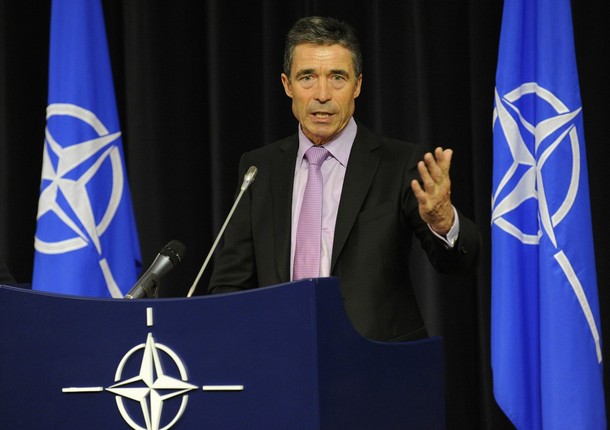
From Emiliano Alessandri, Brookings Institution: The report is comprehensive and detailed. Its recommendations, however, do not always match the measure of vision and boldness that many think is needed to invigorate NATO and renew its sense of purpose. Visionary or provocative proposals floated in recent months in expert and political circles, such as opening NATO’s door to Russia or revising NATO’s nuclear deterrence policy, are not discussed. As a consensus document drafted by twelve distinguished personalities with long-standing ties to the Alliance, “NATO 2020” is balanced and moderate in its language and recommendations. It is understandably wary of plans for transformation that are too radical or “outside the box,” especially if they imply a reduction of NATO’s role or a reconsideration of its mission as traditionally understood. …
Even the more limited proposal to actively involve Russia in the new plans for missile defense, strongly put forward by Secretary General Rasmussen himself at the Brussels Forum in March under the slogan of “one security roof,” does not seem to have been seriously picked up by the Group of Experts. The report limits itself to endorse Obama’s new phased, adaptive approach to ballistic missile defense as allowing for ‘concrete security cooperation’ with Russia.
Perhaps even weaker is the part of the document focusing on the European Union. “NATO 2020” indeed underlines that the European Union is a ‘unique’ and ‘essential’ partner of the Alliance. This observation, however, is not supported by particularly innovative proposals on how to make NATO-EU cooperation more effective. The report recognizes that the post-Lisbon European Union has the instruments and authority, at least on paper, to become a security provider as opposed to security consumer in Europe. The framework in which the discussion is developed, however, still seems to be the traditional one, according to which the EU does the civilian side while NATO and the United States deal with military matters. …
“NATO 2020” does a good job of bridging some of the differences that emerged in many critical debates about the future of the Alliance in recent years. It remains an open question whether this effort, followed by NATO Secretary General’s own work later this year, will be enough to generate the political will that NATO governments will need to revitalize the Alliance. (photo: Getty)
Image: getty%205%2025%2010%20Secretary%20General%20Anders%20Fogh%20Rasmussen.jpg
